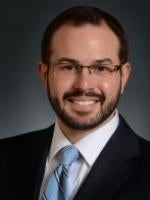Last month, on Labor Day, President Obama signed an Executive Order establishing paid sick leave for federal contractors. The Executive Order will apply to employees working on federal government contracts that are solicited or awarded on or after January 1, 2017.
Once the Order takes effect, all employees – both full-time and part-time – performing work on a covered contract or subcontract must earn at least one hour of paid sick leave for every 30 hours worked. Employers cannot cap the total accrual of paid sick leave below 56 hours per year, and employees must be allowed to carryover the paid sick leave from year to year. Also, if an employee ever is rehired within a 12 month period subsequent to when his or her prior employment was severed, then all unused paid sick leave must be reinstated. Notably, the Order does not require the employer to pay employees for any unused leave at separation of employment.
Under the Order, paid sick leave can be used for an absence caused by any of the following: (1) physical or mental illness, injury, or medical condition; (2) obtaining a diagnosis, care, or preventative care from a health care provider; (3) caring for a child, parent, spouse, domestic partner, or certain other individuals who need the care specified in subsections (1) and (2); and (4) domestic violence, sexual assault, or stalking – including time off for counseling, to seek relocation, or to participate in legal proceedings.
Once the Order is effective, employees will be allowed to make an oral or written request for leave. The leave must be requested at least seven calendar days in advance when the need is foreseeable; if it is not foreseeable, it must be requested as soon as practicable. Employers can require employees to provide certification by a health care provider, but only when the leave is for three or more consecutive workdays.
Similar to other employment laws – especially the Family Medical Leave Act – the Executive Order also prohibits employers from interfering with, discriminating against, or retaliating against an employee who requests or takes leave. Not surprisingly, the Order does not preempt other laws that provide for more generous leave.
The Secretary of Labor has been charged with issuing regulations on the Executive Order by September 30, 2016. The Secretary of Labor will also be responsible for enforcing the Order.
Because the Executive Order only expands paid sick leave to about 300,000 workers, interest groups will almost certainly continue to push for more sweeping paid leave laws. As many of our readers know, that effort has been going on for a little while throughout the country. Currently, approximately 40% of private sector workers – about 44 million workers – still do not receive paid sick leave. Earlier this summer, the White House called on Congress to pass the Healthy Families Act, which was first introduced in 2013. That proposed statute would require that private sector employees receive seven days of paid sick leave per year. However, with gridlock in the House of Representatives and Senate worse than on the roads surrounding the Capitol, it remains unlikely that the bill will pass in this Congress.
Because of congressional inaction, some states and local governments have acted in this area. Connecticut, California, Massachusetts, and Oregon are states that have enacted statewide paid sick leave laws. Washington, D.C. also requires most employers to provide paid sick leave. At the county and city level, the Pittsburgh City Council – to name just one example – enacted a Paid Sick Days bill just a few months ago, as we wrote about here. That law is not slated to go into effect until early 2016, but legal action has already been initiated challenging the legality of the Pittsburgh Ordinance, so it is unclear when (or if) the Ordinance will take effect.
Although the Executive Order discussed above will only affect federal contractors, those employers should begin to assess whether their leave policies comply with the upcoming requirements. In addition, the Order should serve as a reminder that companies which have operations in multiple locales need to pay particular attention to the state and local patchwork of paid sick leave laws in order to stay in compliance. Of course, this is an issue that will bear continued attention, too, since the number of states, counties, and cities with paid sick leave requirements is certain to grow in the coming years.




 />i
/>i


